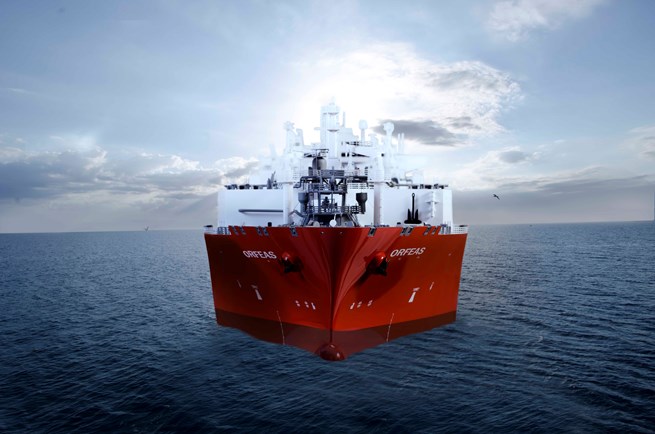Greece’s Gastrade has taken a final investment decision on its FSRU-based LNG import project in Alexandroupolis.
Gastrade’s shareholders include Copelouzou, DESFA, DEPA, GasLog, and Bulgartransgaz.
“The FID is the last and most important milestone, before entering the project’s construction phase,” the partners said in a joint statement on Friday.
According to the statement, the terminal would contribute to the energy security, liquidity and diversification of Greece and entire southeastern Europe.
It would strengthen the strategic role of Greece and offer alternative sources and routes for the supply of natural gas in the area, the statement said.
The partners expect to launch the terminal by the end of 2023, with the contracted regasification capacity already reaching up to 50 percent of its 5.5 bcm capacity.
Last year, the European Commission approved a Greek support measure for the construction of the import terminal in Alexandroupolis.
Under this deal, Gastrade will get 166.7 million euros ($188.5 million) from Greece via the European Structural and Investment Funds.
FSRU conversion
The LNG import project’s 153,500-cbm FSRU will sit 17.6 kilometers offshore the town of Alexandroupolis in northeastern Greece.
It will connect to the Greek domestic gas grid via a 28 kilometers long pipeline.
Peter Livanos-led LNG shipping firm GasLog plans to convert one of its LNG carriers to FSRU, which will subsequently be transferred to Gastrade at the end of 2023.
GasLog will also operate and maintain the FSRU.
Once installed, the vessel will supply the fuel to several markets in the region.
This includes Greece, Bulgaria and the wider region, from Romania, Serbia and North Macedonia to Moldova and Ukraine.
Second LNG import facility
With this FID, Greece will get its first FSRU and the second LNG import facility, adding to DESFA’s import terminal located on the island of Revithoussa.
In addition, Dioriga Gas, a unit of Motor Oil, is planning another FSRU-based import project in Greece’s Gulf of Corinth.
LNG deliveries to Greece dropped by almost 31 percent in 2021 due to lower volumes from the US and Qatar.
US deliveries via the Revithoussa terminal rose more than six times in 2020 as LNG dominated over pipeline gas due to lower spot prices. However, the market completely changed in 2021 as spot prices surged to record highs.

